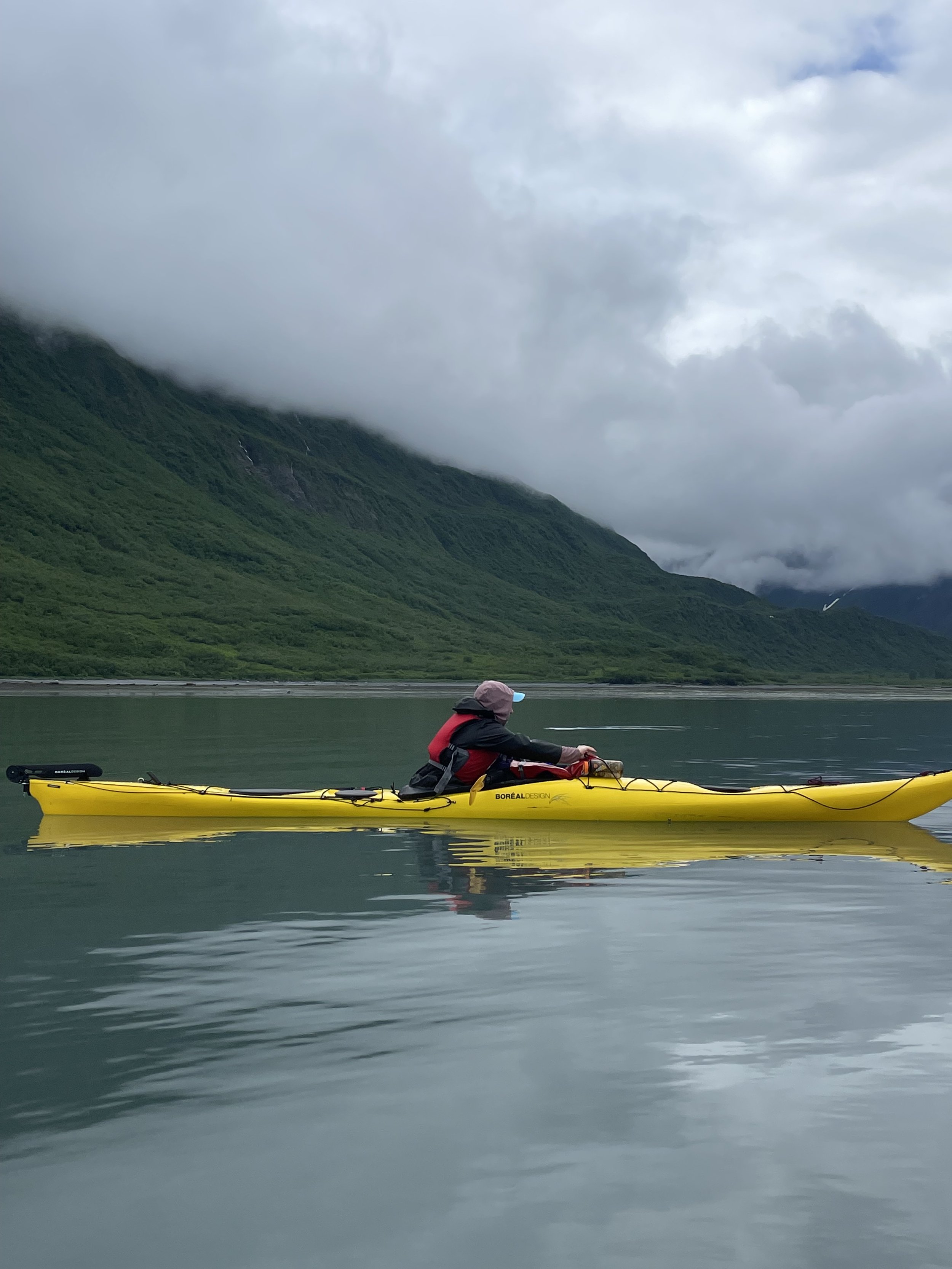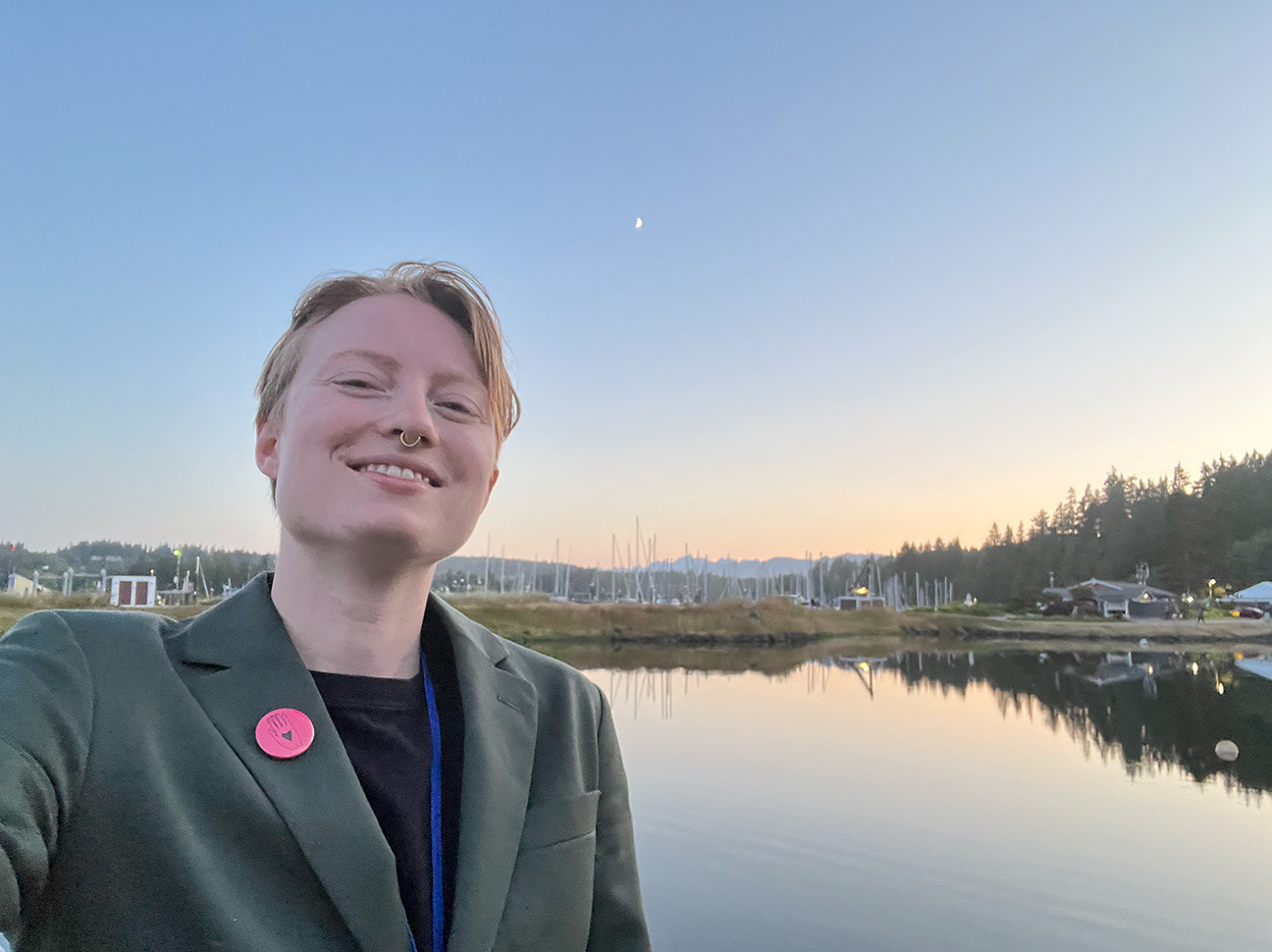
Emma Durbin
(They/Them)
Producer, Playwright, Director, and Dramaturg
About Me
I am a multidisciplinary theatre artist whose work centers queerness, love, and community.
I have produced more than 20 different new play workshops in Chicgao, New York, and Oregon. I am a co-founding producer for new play development initiatives dedicated to emerging and unproduced playwrights including Freshly Brewed at The Understudy Coffee and Books, New Play Fest 2025 at Subtext Studio TC, and Whale Watch Fest NYC. I also spent the last four months at the Oregon Shakespeare Festival, where I remounted a decades-long development program, the Black Swan Lab, which had been on hiatus for the last 5 years.
My plays include: landscape (workshops: Theatre L’Acadie, Whale Watch Fest NYC, Valdez Theatre Conference, Mirrorbox Theatre; awards: NAP Series at Normal Ave finalist, LAB Series at The Inkwell Theater finalist, Premiere Play Festival semifinalist, Irons in the Fire at Fault Line Theatre semifinalist), overgrown (workshops: Valdez Theatre Conference, Jackalope Playwrights Lab), Witchcraft, Bitchcraft (workshop and commission: Pocket Theatrics).
My short plays have been presented by Chicago Dramatists, Shattered Globe Theatre, Naked Angels, Westmont College, Western Washington University, and DePaul University.
I have directed readings and workshops including : ACOMMA by Marjorie Muller (Artemisia Theatre), Monstrous by Skye Hillgartner (OSF FAIR Capstone), Hypergamater by Marjorie Muller (Valdez Theatre Conference), and Revenge of the Holy Virgin Martyrs by Kristin Idaszak (asst. dir. to Regina Victor, TimeLine Theatre).
I have served on dramaturgy teams for new play readings and workshops at Actors Theatre of Louisville, TimeLine Theatre Company, The Story Theatre, and more.
I am the Literary Manager for Freshly Brewed, and additionally serve as a script reader for Playwrights Center and The Playwrights Realm.
About My Work
I am driven to create art as I live my life: in pursuit of love and the abundance of chosen family. My plays ask what do we desire from each other? What do we owe ourselves? And how, in all our complexities, are we showing up for one another in our shared spaces?
With a focus on agency and empowerment, I write the personal, social, and political revolutions that I crave. In my intergenerational election judge play, overgrown, I interrogate how privilege and identity both impact our capacity to stand up for what we believe in without sacrificing our safety or mental wellness. I excavate the tools necessary to demand space for love, authenticity, and joy in this world.
In my ensemble rock climbing play, landscape, the characters embark on a similar journey towards bravery. On this path, their inner struggles to become their most authentic selves align with their advocacy for a more just and compassionate world. The play culminates when a trans femme character finally finds their place in the world by traveling through space and time and transforms something that was previously a tool of oppression into one of liberation.
When I write, I reach into the space between reality and fantasy, poetry and naturalism, to craft intimate stories inspired by my own journey to explore queerness, love, and belonging. In my play, witchcraft, bitchcraft, two teenage girls use magic to exact their rage against the patriarchy as they claim a space for themselves in this world. The experience of writing this story enriched with magic and fantastical elements inspired me to expand beyond realism in my most recent new draft of landscape, interweaving a series of time-slips and dreams for the climbers in 2019 to meet mountaineers from 1908.
My dedication to community and radical caretaking comes through within and beyond my playwriting practice. I am passionate about creating abundant and supportive development opportunities for my fellow writers. In all my creative endeavors, I strive to re-imagine the new play development process as an act of care for the art, artists, and communities with which it engages. I long to continue to support and build opportunities for my fellow writers throughout my career.
I similarly hope to continue crafting expansive ensemble stories that defy the status quo, to experiment with the liminal relationship between form and content, and to envision rich, fantastical, and craggy worlds.
I strive to build heart-centered and abundantly queer spaces and to reckon with the horrors of our world, all while inspiring hope and compassion. When I create, I dare myself and my fellow artists to dream.
Education
I interned at the Goodman Theatre, Oregon Shakespeare Festival, and Ashland New Plays Festival.
I attended the New Play Dramaturgy Intensive at the Kennedy Center with Mark Bly.
Playwriting BFA: The Theatre School at DePaul University (Dean’s Prize Recipient, magna cum laude).
I am currently available for freelance dramaturgy and script consultations.
